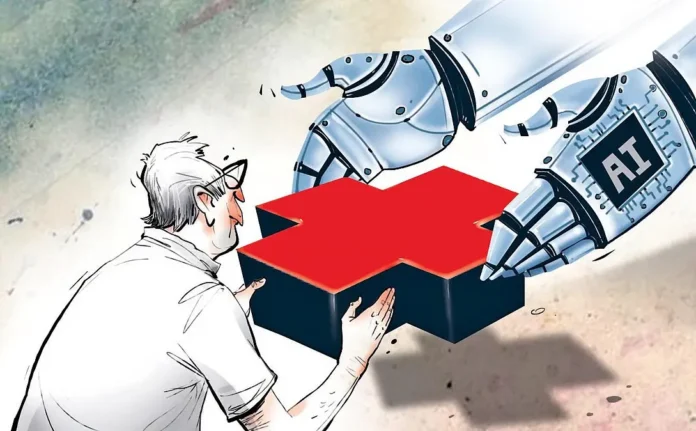In healthcare today, AI holds out the promise of breakthroughs—from more acute diagnostics to precision-guided treatment. But recent results reveal an alarming side effect. Physicians relying on AI for mundane tasks can lose their diagnostic skills when the AI support is taken away. This isn’t hypothetical—it’s actual, pressing, and demands prompt attention.
In one setting, clinicians using AI to tailor patient care and treatment pathways gained efficiency—yet, skills like nuanced diagnostics subtly became secondary. As explored in other work on AI’s role in personalized treatment, tech excels at speed—but human clinicians excel at context-rich judgment.
The Risk of Skill Erosion: What the Evidence Reveals
De-skilling in Real-World Practice
A new study in The Lancet Gastroenterology & Hepatology reports a shocking trend: following daily use of AI-aided colonoscopy aids, physicians witnessed a decline in adenoma detection rates—28% to 22%—when AI was not available. This is the “Google Maps effect” whereby use of navigation technology diminishes our own mapping capabilities.
Academic Reviews Echo the Warning
An extensive literature review in Milan reveals AI-facilitated de-skilling in a variety of areas: clinical judgment, differential diagnosis, communication, and physical examination competence. Another report identifies a divide among professionals—some consider AI a tool for upskilling, while others believe it inherently compromises clinical competence.
Widespread Practitioner Concern
Survey findings indicate that 57% of clinicians are afraid generative AI might compromise their clinical competence, and 55% are concerned about unaddressed algorithmic bias.
Why This Matters
- Patient Safety at Risk: Eroded skills alert to diagnostic errors, especially during AI outages or failures.
- Overlooking Clinician Insights: Subtle, human-derived judgment—like noticing subtle patient cues—could be missed.
- Preparation Gaps: Training programs may need reevaluation if skill reliance shifts toward AI.
How to Preserve Clinical Expertise While Using AI
1. Preserve Regular Non-AI Practice
Mandate periodic manual workflows—such as alternating non-AI-supported procedures—to keep clinicians sharp even when assurances of AI reliability slip.
2. Implement Continuous Skills Assessment
Use audits to track changes in performance over time, especially after prolonged exposure to AI assistive tools.
3. Design AI as an Assistant, Not a Crutch
Ensure systems prompt clinicians to verify recommendations rather than just passively follow them. Encourage accountability and active engagement in decision-making.
4. Develop Longitudinal Research on AI and Clinical Skill
Support studies tracking skill retention and decay over time to build real-world data on AI’s long-term impacts.
5. Train for Hybrid Competency
Adapt education to emphasise not just how to use AI tools, but when and why to override them—embedding AI-literate thinking without compromising hands-on clinical acumen.
Good Practices in Human-AI Collaboration
- Clear Divide of Responsibilities: Let AI handle pattern detection, leave nuanced decisions in human hands.
- Transparency and Explainability: AI should provide reasoning, not opaque recommendations.
- Cultivate Trust with Oversight: Encourage second opinions even where AI confidence is high.
Conclusion
AI in medicine holds enormous potential—but not without risk. If doctors become by-the-book automatons, responding to machine prompts, we stand to lose human know-how essential to the practice of medicine. But the remedy isn’t to abandon AI; it’s to align it with energetic clinical training, protections, and responsibility. With the power of AI balanced by practitioner acumen, we safeguard both innovation and integrity—a health system of tomorrow that’s wiser and more compassionate.





